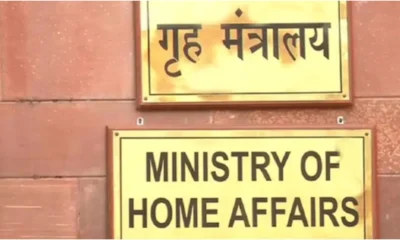Travel Guides & Articles
Now Turkey Joins With Pakistan, Bangladesh, Iran, India And More In Visa Restriction List as Japan Tightens Visa Policies: Know The Impact on Travelers

Published on
August 24, 2025
In recent months, Japan has introduced visa restrictions affecting citizens from several countries, including Bangladesh, Pakistan, Iran, China, India, the Philippines, Vietnam, Myanmar, Nepal, North Korea, and Russia. These measures have sparked concerns among travelers and the international community, especially as Japan was previously known for its relatively open visa policies. The restrictions are part of a broader shift in Japan’s approach to immigration and international travel, influenced by various factors including security, diplomatic relations, and health considerations. As a result, travelers from these affected nations may face new barriers when attempting to visit Japan, leading to potential disruptions in tourism and bilateral relations.
Countries Affected by Japan’s Visa Restrictions
The following countries have been identified as having restricted visa access to Japan:
- Bangladesh
- Pakistan
- Iran
- China
- India
- Philippines
- Vietnam
- Myanmar
- Nepal
- North Korea
- Russia
Reasons Behind Japan’s Visa Restrictions
1. Security Concerns
Japan has expressed concerns over security issues related to certain countries. For instance, North Korea’s ongoing missile tests and nuclear activities have led Japan to impose strict entry restrictions on its citizens. Similarly, Iran’s geopolitical tensions have influenced Japan’s visa policies.
2. Diplomatic Relations
The state of diplomatic relations between Japan and other nations plays a significant role in visa policies. Countries with strained relations may face tighter visa requirements. For example, Japan’s diplomatic stance towards Myanmar’s military regime has resulted in limited visa access for its citizens.
3. Reciprocal Agreements
Japan often bases its visa policies on reciprocal agreements with other countries. If a country imposes stringent visa requirements on Japanese citizens, Japan may reciprocate with similar measures. This has been observed in its relations with certain countries.
4. Public Health Concerns
Global health crises, such as the COVID-19 pandemic, have led Japan to implement temporary visa restrictions. These measures were aimed at controlling the spread of the virus and protecting public health.
The Rise of Restrictions on Turkish Citizens
Recent reports from Japanese nightlife establishments have confirmed that some venues, particularly nightclubs, are refusing entry to individuals carrying Turkish passports. Social media posts from travelers have highlighted this growing issue, with several visitors recounting experiences where they were denied entry after their nationality was identified. These restrictions are being imposed even though no official government mandate has been issued yet.
The move comes after a statement by Saitama Governor Motohiro Ono in July, urging the Japanese authorities to suspend the visa-free travel arrangements for Turkish nationals. Although this suggestion has yet to result in a national policy change, local businesses appear to be preemptively adjusting their practices, especially in the hospitality and entertainment sectors.
Implications for Turkish Citizens and Japan’s Reputation
For Turkish nationals, the restrictions represent a stark shift from the previously friendly and open atmosphere that Japan had long cultivated for international visitors. Japan has long been seen as a safe and welcoming destination for travelers from all over the world, including Türkiye. The introduction of nationality-based bans in nightlife venues contradicts this image and could potentially discourage Turkish visitors from traveling to Japan.
The impact on tourism is particularly concerning for the Japanese tourism industry. For years, Japan has been a popular destination for Turkish tourists, with a growing interest in Japanese culture, history, and cuisine. These new barriers could lead to reduced confidence among Turkish travelers, who may feel unwelcome or restricted. Tourism experts suggest that even localized measures, if left unchecked, could damage Japan’s reputation as a diverse and open destination for international tourists.
The Background: Visa-Free Travel and Political Shifts
Japan and Türkiye have enjoyed visa-free travel arrangements for many years, allowing Turkish citizens to visit Japan for tourism, business, or short stays without requiring a visa. However, Governor Ono’s recent comments have sparked a shift in the political climate surrounding migration and security concerns. While no formal changes to the visa policy have been announced, the discourse around reconsidering visa exemptions has led to a rise in restrictions from individual businesses.
Japan’s central government has yet to make any official announcements regarding visa-free travel, leaving many Turkish nationals uncertain about the future of their travel freedoms. However, the actions taken by nightclubs and other businesses in anticipation of potential policy changes signal a tightening of access for Turkish visitors.
The Impact on Turkish Tourism and Local Businesses in Japan
The restrictions on Turkish passport holders could have a ripple effect on both tourism and local businesses in Japan. With fewer Turkish visitors choosing Japan as a travel destination, there could be a downturn in tourism-related spending, including accommodations, dining, and cultural activities. Moreover, many tourism operators and local businesses that have benefited from the influx of Turkish tourists may see a decline in demand.
The political and social impact of these restrictions is also significant. Turkish citizens, many of whom have visited Japan for years without incident, may feel disheartened by the growing sense of exclusion. These developments also pose a potential diplomatic challenge, as they may prompt reciprocal actions by Türkiye, further complicating bilateral relations.
What Does This Mean for Future Travel to Japan?
For those considering Japan as their next travel destination, it’s important to keep an eye on the evolving situation. Although there have been no official changes to the visa policy, travelers should be aware of the possibility of increased restrictions, particularly when it comes to entry into private venues like nightclubs.
To navigate this evolving situation, here are a few tips for Turkish travelers and those planning to visit Japan in the near future:
- Check Entry Requirements Before Traveling: While Japan currently maintains a visa-free entry policy, travelers should verify any changes to travel guidelines before departure. The Japanese embassy or consulate website is a reliable resource for up-to-date information.
- Be Prepared for Possible Restrictions: If you are planning to visit Japan, it’s wise to expect potential restrictions in nightlife venues. Carrying a valid passport and preparing for additional checks could help mitigate any entry issues.
- Explore Other Regions of Japan: If restrictions continue to impact the major cities, consider exploring lesser-known areas of Japan, where tourism policies might not be as strictly enforced.
- Stay Informed: Travel agencies and tourism organizations are closely monitoring the situation. Staying informed about any government announcements will help avoid confusion and frustration.
How Can Japan Address These Concerns?
To address the concerns surrounding these restrictions, Japan may need to consider implementing clearer policies that ensure a fair and welcoming atmosphere for all tourists. A return to open, visa-free travel for Turkish nationals could help rebuild trust between Japan and Türkiye while also supporting Japan’s broader tourism goals. Additionally, greater collaboration between government authorities and local businesses could help streamline entry processes and prevent individual establishments from enforcing arbitrary nationality-based restrictions.
Japan’s status as an inclusive and welcoming destination depends on its ability to manage these tensions while keeping its doors open to international visitors. How the country navigates this issue in the coming months will have lasting consequences for its tourism industry and its relations with Türkiye.
Key Points:
- Issue: Restrictions targeting Turkish passport holders at Japanese nightclubs and other venues.
- Trigger: Calls from Saitama Governor Motohiro Ono to reconsider the visa-free travel policy for Turkish nationals.
- Current Measures: Localized bans at nightlife venues, affecting Turkish travelers.
- Existing Arrangement: Visa-free travel between Japan and Türkiye.
- Concerns: Impact on tourism, diplomatic relations, and Japan’s global reputation as an inclusive travel destination.
Impact on Travelers and Tourism
The imposition of visa restrictions has significant implications for travelers:
- Inconvenience for Travelers: Citizens from affected countries may face challenges in planning trips to Japan, requiring additional documentation and processing time.
- Economic Impact: Tourism is a vital sector for Japan’s economy. Restricting visitors from certain countries can lead to a decline in tourist numbers, affecting local businesses and the hospitality industry.
- Cultural Exchange: Japan has long valued cultural exchange. Visa restrictions may hinder opportunities for international students, researchers, and professionals to engage with Japanese culture and institutions.
Recommendations for Affected Travelers
Travelers from countries facing visa restrictions should consider the following steps:
- Consult Official Sources: Regularly check the Japanese Ministry of Foreign Affairs website for the latest visa information and updates.
- Prepare Documentation: Ensure all required documents are complete and accurate to avoid delays in the visa application process.
- Consider Alternative Destinations: If facing significant challenges in obtaining a Japanese visa, explore other countries in the region with more accessible entry requirements.
Conclusion: Navigating Japan’s Visa Landscape
Japan’s visa restrictions are influenced by a complex interplay of security, diplomacy, reciprocity, and public health considerations. While these measures may pose challenges for travelers, staying informed and prepared can help mitigate potential obstacles. As international relations evolve, so too may Japan’s visa policies, potentially leading to changes in the future.
Travel Guides & Articles
Kalka-Shimla toy train halted for third day due to rain; tourism and taxi sector hit | Latest News India

The iconic Kalka-Shimla toy train services remained suspended for the third consecutive day on Wednesday due to multiple landslides and track blockages caused by incessant rainfall across Himachal Pradesh, severely impacting the tourism and taxi business in the hill capital.
Continuous heavy rains for nearly a week have disrupted normal life in the state, blocking roads and damaging infrastructure. The Northern Railway has announced that all services on the UNESCO World Heritage narrow-gauge route will remain suspended until September 5 as engineers work to clear debris and repair damaged sections of the track, particularly near Datiyar in the Solan district, where a portion of the track has reportedly been washed away.
The suspension has hit local tourism-related businesses hard, especially during the monsoon season when many visitors prefer the toy train for its scenic yet relatively safe travel experience.
Luckey, President of the Taxi Union at Shimla Railway Station, told ANI that the halt in services has left many drivers struggling to make ends meet.
“The rain has caused a lot of trouble. Roads are blocked almost everywhere. Our business has been badly affected. The train was our only link, bringing in some tourists, but it has been closed for five days now. We are finding it hard to even cover our daily expenses,” Luckey said.
He added that while the Railway has officially notified suspension until September 5, the damage is extensive.
“They say landslides have occurred in multiple places and near Datiyar, the track itself is gone. Even here at the station, we have to leave our vehicles and walk to avoid damage, because trees are falling everywhere. Our livelihood was running only because of the train, but since it stopped, everything has come to a standstill,” he lamented.
Authorities have deployed teams to clear landslides and restore connectivity on the track, but with more rain forecast, the timeline for resumption of services remains uncertain.
The Kalka-Shimla toy train, built in 1903, a heritage train route is one of the region’s biggest tourist draws, offering panoramic views of the mountains, valleys, and colonial-era architecture. Its prolonged suspension during peak monsoon season is expected to cause further economic strain on those dependent on tourism in the city.
Travel Guides & Articles
India’s TBO to acquire Classic Vacations

India based travel distribution platform TBO has agreed to acquire Classic Vacations from Phoenix-based investment firm, The Najafi Companies.
The transaction value is estimated at up to $125 million.
The acquisition brings together TBO’s technology platform and worldwide inventory with Classic Vacations network of luxury travel advisors and suppliers.
Classic Vacations delivered revenue of $111 million and an operating EBITDA of $11.2 million in the fiscal year ended December 31, 2024.
“We’re thrilled to bring Classic Vacations into the TBO family – the company’s longstanding delivery of outstanding services has earned the trust of its more than 10,000 travel advisors in the U.S,” said Gaurav Bhatnagar, TBO’s co-founder and joint managing director.
“Classic Vacations is led by a strong team of experts and will continue as an independent brand.”
“As we start working on integrating Classic Vacations with TBO, we will remain open to similar strategic alliances going forward,” added Ankush Nijhawan, co-founder and co-managing director.
Melissa Krueger, CEO of Classic Vacations, added: “Together, we’re strengthening Classic Vacations’ position as the premier luxury partner in the market while extending our reach onto the global stage.”
Classic Vacations was bought by The Najafi Companies in 2021 from Expedia Group.
Classic Vacations has a large network of high-value travel advisors and deep ties with major American consortia.
It delivers premium service across hotels, air, experiences, car rentals, and travel protection, specializing in bespoke luxury itineraries.
Related News Stories: Partner News – TravelMole
Travel Guides & Articles
Govt allows select minorities to stay in India without passport

The Union Home Ministry on Monday, September 1, issued an order announcing that the government now exempts minority communities, namely, Hindu, Sikh, Buddhist, Jain, Parsi and Christian fleeing religious persecution from Afghanistan, Bangladesh, and Pakistan, who entered the country by December 31, 2024, without requiring valid passports or travel documents.
“A person belonging to a minority community in Afghanistan, Bangladesh and Pakistan, namely, Hindu, Sikh, Buddhist, Jain, Parsi and Christian, who was compelled to seek shelter in India due to religious persecution or fear of religious persecution and entered into India on or before the 31st December, 2024,” read the order from the home ministry.
Interestingly, the order did not name Muslims. This is in line with the BJP-led government’s Citizenship Amendment Act (CAA) that was passed in 2019 to facilitate this. It had le to severe protests from Muslims and other citizens who said the law is discriminatory in nature and that it can also be misused to disenfranchise Muslims in the country.
In fact, over the last few months the central government and BJP-led state governments have been targeting Indian Muslims from West Bengal who were being picked up on false allegations of being Bangladeshi citizens. Several prominent activists including Umar Khalid and Sharjeel Imam are currently in jail having spent nearly five years in prison on charges of inciting riots in Delhi amid the anti-CAA protests.
It was issued as part of a series of directives made public by the Union Home Ministry, under the newly enacted Immigration and Foreigners Act, 2025, which came into effect on Monday, September 1.
The Immigration and Foreigners Bill, 2025, aims to grant the Union government the power to control the entry and exit of individuals into and from India by regulations that outline requirements for travel documents, such as passports, and govern various aspects of foreign nationals’ stay, including visa rules, registration procedures, and other related matters.
Previously, the Citizenship Amendment Act (CAA), which was enforced last year, extended the eligibility for citizenship only to non-Muslim minorities from Afghanistan, Bangladesh, and Pakistan who entered India on or before December 31, 2014.
While the recent directive allows certain individuals to stay in India without documentation if they arrived by December 31, 2024, it doesn’t guarantee citizenship.
In contrast, the 2019 Citizenship Amendment Act offers a path to citizenship for persecuted non-Muslim minorities from Pakistan, Afghanistan, and Bangladesh who entered India before December 2014.
The CAA’s exclusion of Muslims sparked widespread protests and concerns about discrimination, secularism, and potential disenfranchisement.
-

 Business5 days ago
Business5 days agoThe Guardian view on Trump and the Fed: independence is no substitute for accountability | Editorial
-
Tools & Platforms3 weeks ago
Building Trust in Military AI Starts with Opening the Black Box – War on the Rocks
-

 Ethics & Policy1 month ago
Ethics & Policy1 month agoSDAIA Supports Saudi Arabia’s Leadership in Shaping Global AI Ethics, Policy, and Research – وكالة الأنباء السعودية
-

 Events & Conferences4 months ago
Events & Conferences4 months agoJourney to 1000 models: Scaling Instagram’s recommendation system
-

 Jobs & Careers2 months ago
Jobs & Careers2 months agoMumbai-based Perplexity Alternative Has 60k+ Users Without Funding
-

 Education2 months ago
Education2 months agoVEX Robotics launches AI-powered classroom robotics system
-

 Funding & Business2 months ago
Funding & Business2 months agoKayak and Expedia race to build AI travel agents that turn social posts into itineraries
-

 Podcasts & Talks2 months ago
Podcasts & Talks2 months agoHappy 4th of July! 🎆 Made with Veo 3 in Gemini
-

 Podcasts & Talks2 months ago
Podcasts & Talks2 months agoOpenAI 🤝 @teamganassi
-

 Education2 months ago
Education2 months agoAERDF highlights the latest PreK-12 discoveries and inventions



















